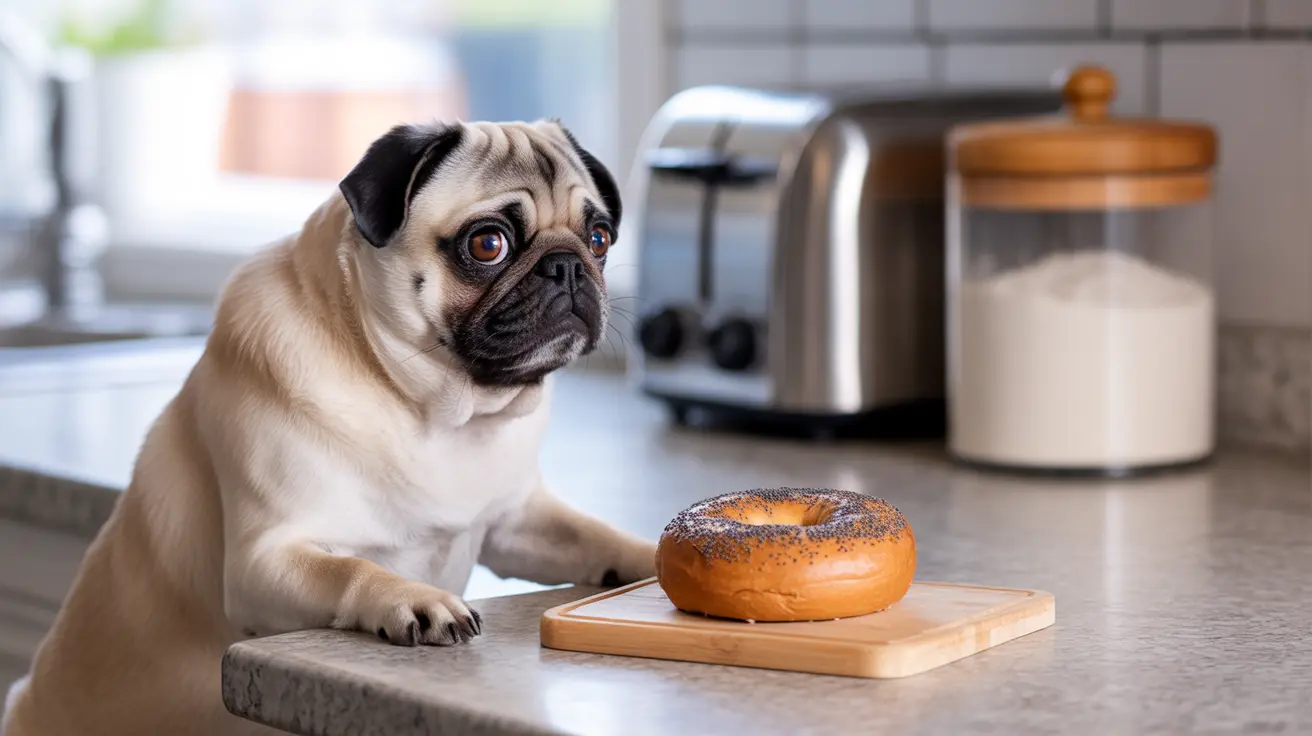As a pet owner, you might wonder about the safety of sharing human foods with your furry friend. When it comes to poppy seeds, commonly found in baked goods and various recipes, the answer is clear: dogs should never consume poppy seeds. These tiny seeds can pose serious health risks to our canine companions, and understanding why is crucial for every dog owner.
In this comprehensive guide, we'll explore the dangers of poppy seeds for dogs, what happens if your dog accidentally consumes them, and what steps you should take in case of ingestion. We'll also discuss safe alternatives to ensure your pet's wellbeing.
Understanding the Dangers of Poppy Seeds for Dogs
Poppy seeds come from the opium poppy plant (Papaver somniferum) and can contain trace amounts of opiate alkaloids, including morphine and codeine. While these amounts might be insignificant for humans, dogs process these compounds differently, making them much more sensitive to their effects. Even small quantities can lead to serious health complications.
Why Dogs Are More Sensitive to Poppy Seeds
Dogs have a unique metabolism that makes them particularly vulnerable to the effects of opiates. Their digestive system and nervous system process these compounds more intensely than humans do, potentially leading to severe reactions even from minimal exposure. This heightened sensitivity means that what might be a safe amount for humans could be dangerous for our canine friends.
Signs of Poppy Seed Poisoning in Dogs
If your dog has consumed poppy seeds, watch for these warning signs:
- Extreme lethargy or drowsiness
- Poor coordination or stumbling
- Excessive drooling
- Dilated pupils
- Difficulty breathing
- Vomiting and diarrhea
- Seizures in severe cases
- Decreased heart rate
- Changes in body temperature
Emergency Response to Poppy Seed Ingestion
If you suspect your dog has eaten poppy seeds or foods containing them, immediate action is crucial:
- Contact your veterinarian or emergency animal hospital immediately
- Note the approximate amount consumed and when
- Collect any remaining evidence (packaging, leftover food)
- Do not induce vomiting unless specifically instructed by a professional
- Be prepared to take your dog for immediate medical evaluation
Prevention and Safe Alternatives
To keep your dog safe, implement these preventive measures:
- Store all baked goods containing poppy seeds in secure containers
- Keep bread and bagels out of your dog's reach
- Inform family members and guests about the dangers
- Choose safe seed alternatives like plain pumpkin or sunflower seeds (in moderation)
- Always supervise your dog during meal times
Frequently Asked Questions
Are poppy seeds safe for dogs to eat, and why are they considered dangerous?
No, poppy seeds are not safe for dogs to eat. They can contain trace amounts of opiates that, while minimal to humans, can be dangerous for dogs due to their different metabolism and higher sensitivity to these compounds.
What symptoms should I watch for if my dog accidentally eats poppy seeds?
Key symptoms include lethargy, poor coordination, excessive drooling, dilated pupils, difficulty breathing, and in severe cases, seizures or coma. Any of these symptoms warrant immediate veterinary attention.
How quickly do poppy seed poisoning symptoms appear in dogs, and how severe can they get?
Symptoms typically appear within a few hours of ingestion and can range from mild drowsiness to severe neurological issues. The severity depends on the amount consumed and the dog's size and sensitivity.
What immediate steps should I take if my dog consumes poppy seeds or a poppy seed-containing food?
Contact your veterinarian immediately, note the amount and time of consumption, and follow their instructions carefully. Don't wait for symptoms to appear before seeking help.
What safe seed alternatives can I offer my dog instead of poppy seeds?
Safe alternatives include plain pumpkin seeds, unsalted sunflower seeds, or chia seeds in moderation. Always introduce new foods gradually and consult with your veterinarian first.
Remember, when it comes to your dog's health, it's always better to err on the side of caution. If you're ever unsure about a food's safety, consult with your veterinarian before offering it to your pet.






